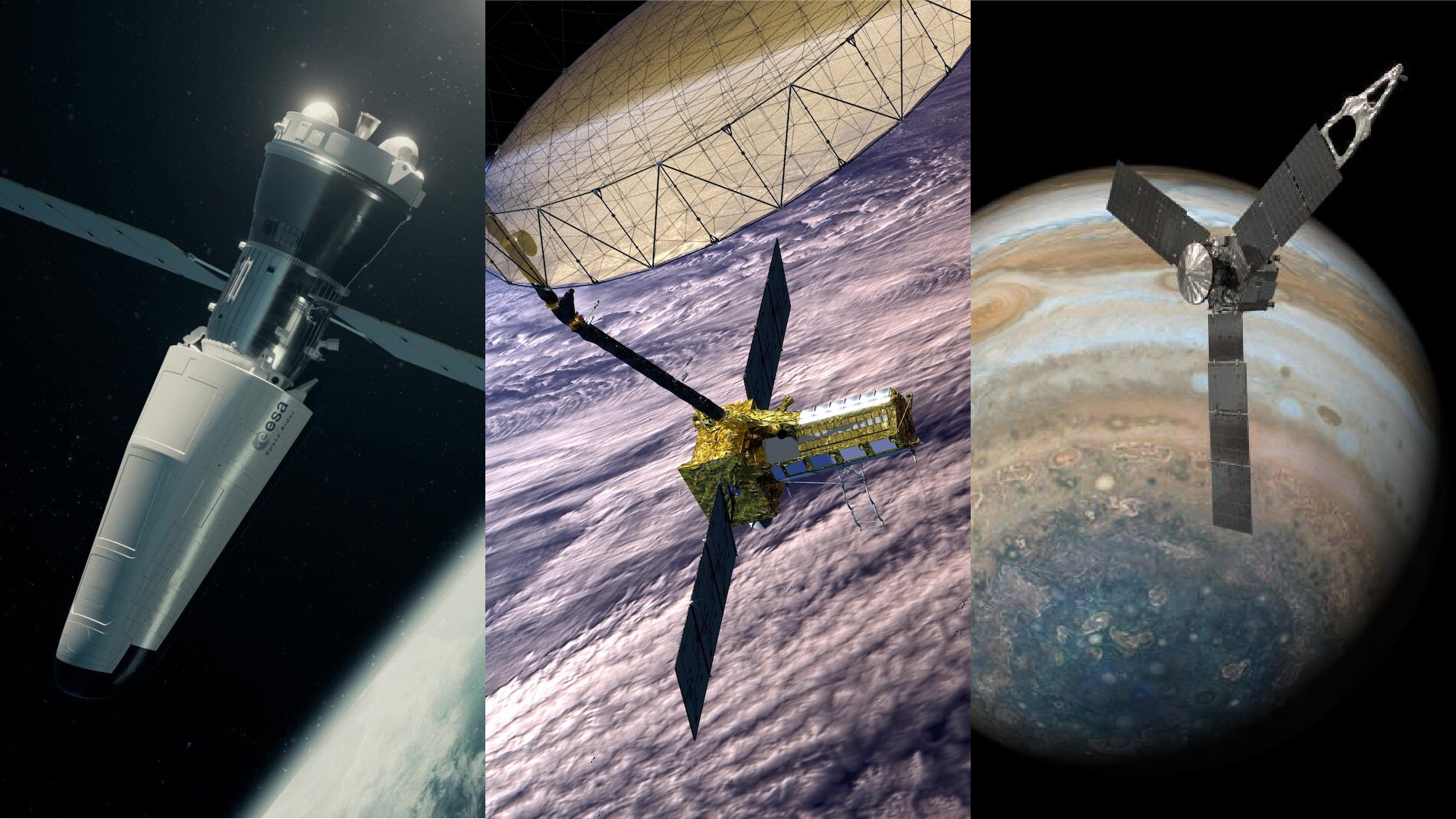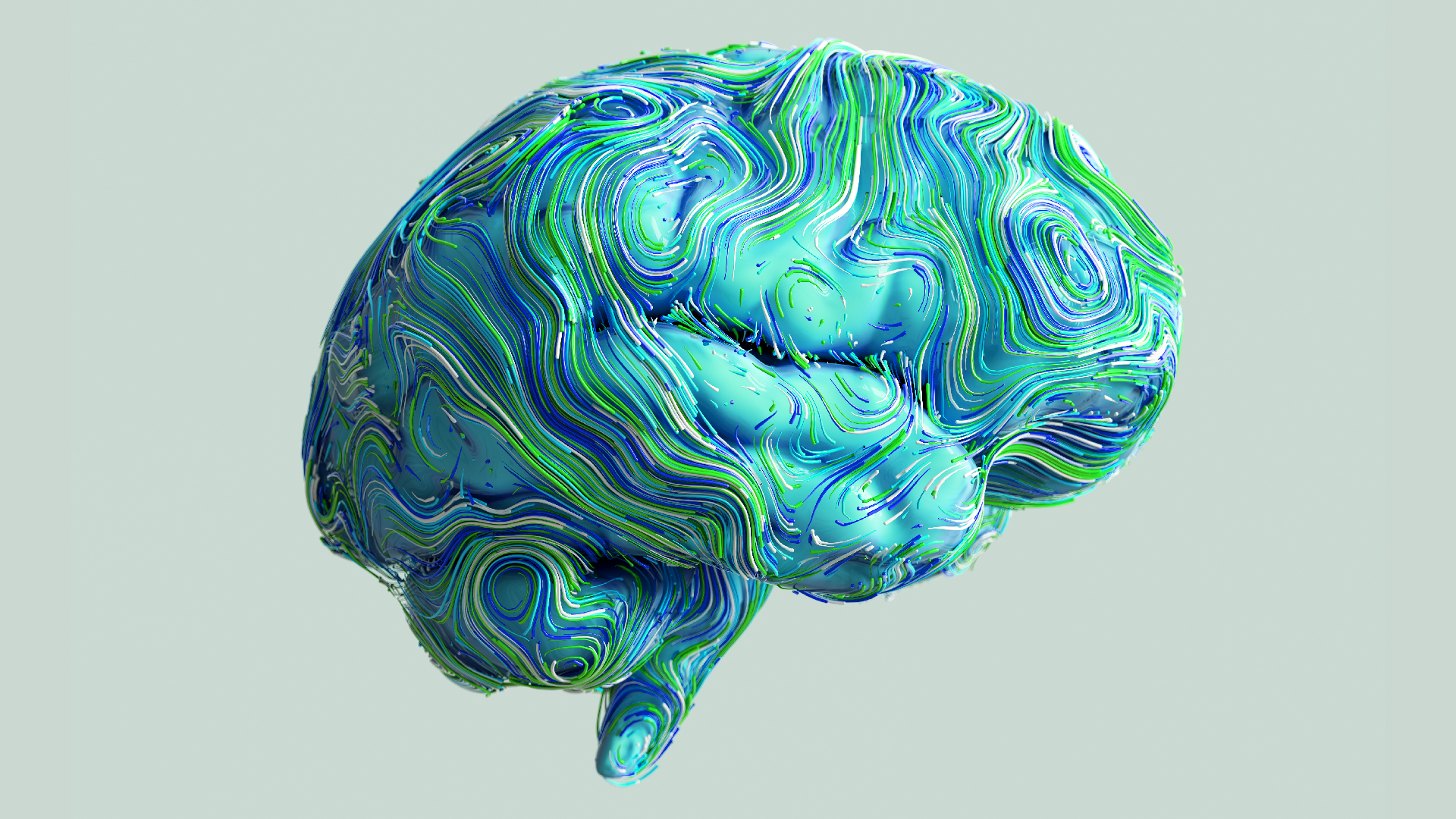Northern lights photographer of the year winners
The winners for the 2023 "Northern lights photographer of the year" include locations from which the northern lights have never been photographed before.
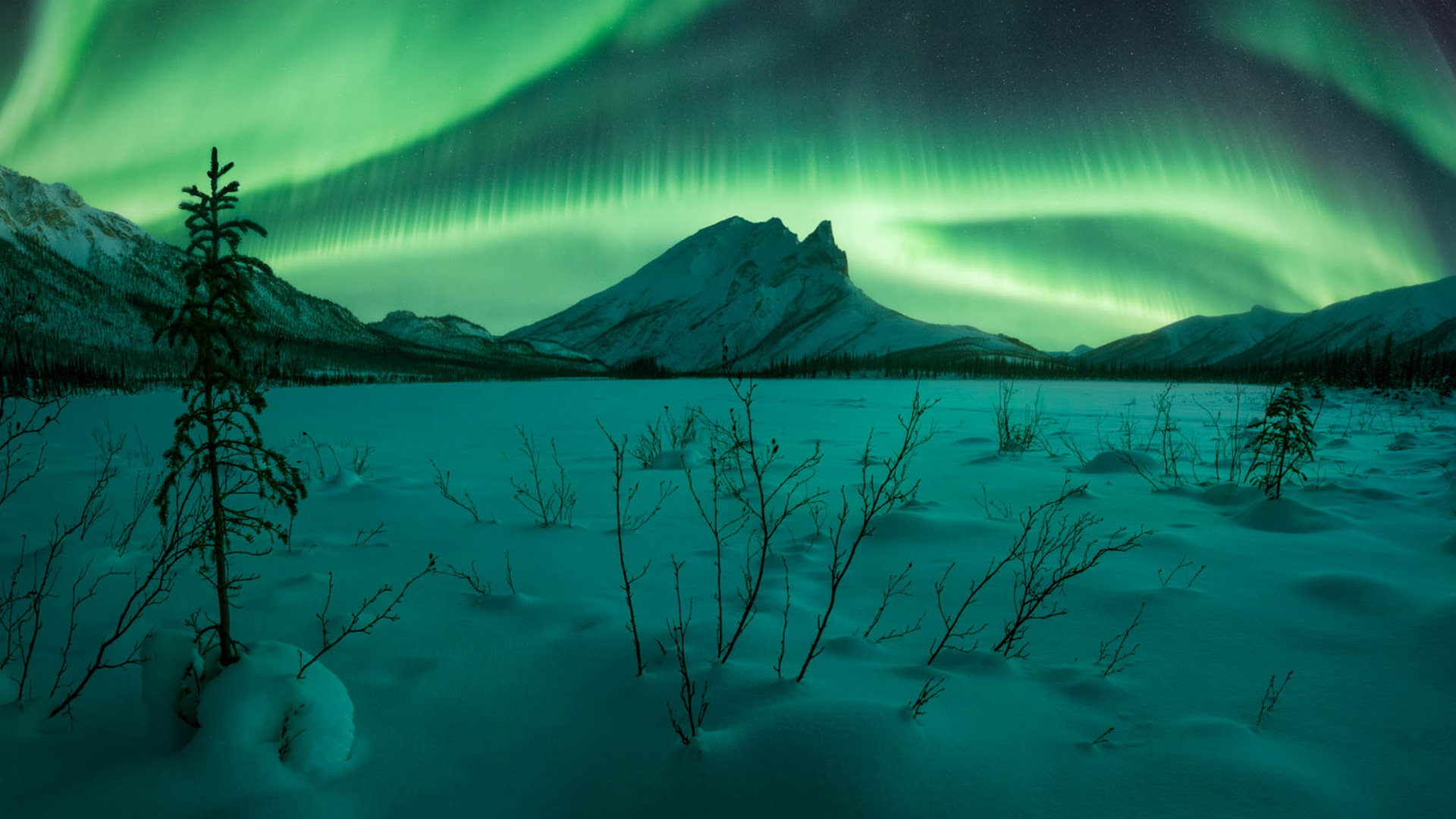
The northern lights, or aurora borealis, are a worldwide natural wonder. They form when solar wind from the sun slams into Earth's atmosphere, ionizing the oxygen and nitrogen molecules there. As they release that extra energy, they give off an ethereal glow.
This year's winners for the Northern lights photographer of the year, the sixth edition from Capture the Atlas, includes 25 of the best northern lights photography from around the world.
The 2023 finalists includes selections from latitudes where the lights have never been photographed before. As Earth approaches the solar maximum, or the chaotic peak of 11-year solar cycle, the northern lights can be seen at these lower latitudes.
From the Arctic landscapes of Alaska and Norway to the Southern Hemisphere's Australia and New Zealand, this awesome collection of photography showcases greens, purples, and magentas that shouldn't be missed.
Winner: Storm over Sukapak, Nickolas Warner
This green northern light display over Sukakpak Mountain from Nickolas Warner took first place in the contest. Located approximately 70 miles (110 kilometers) north of the Arctic Circle, the peak is part of the Brooks Mountain Range in Alaska, USA.
Second place: The Arctic dance, Vincent Beudez
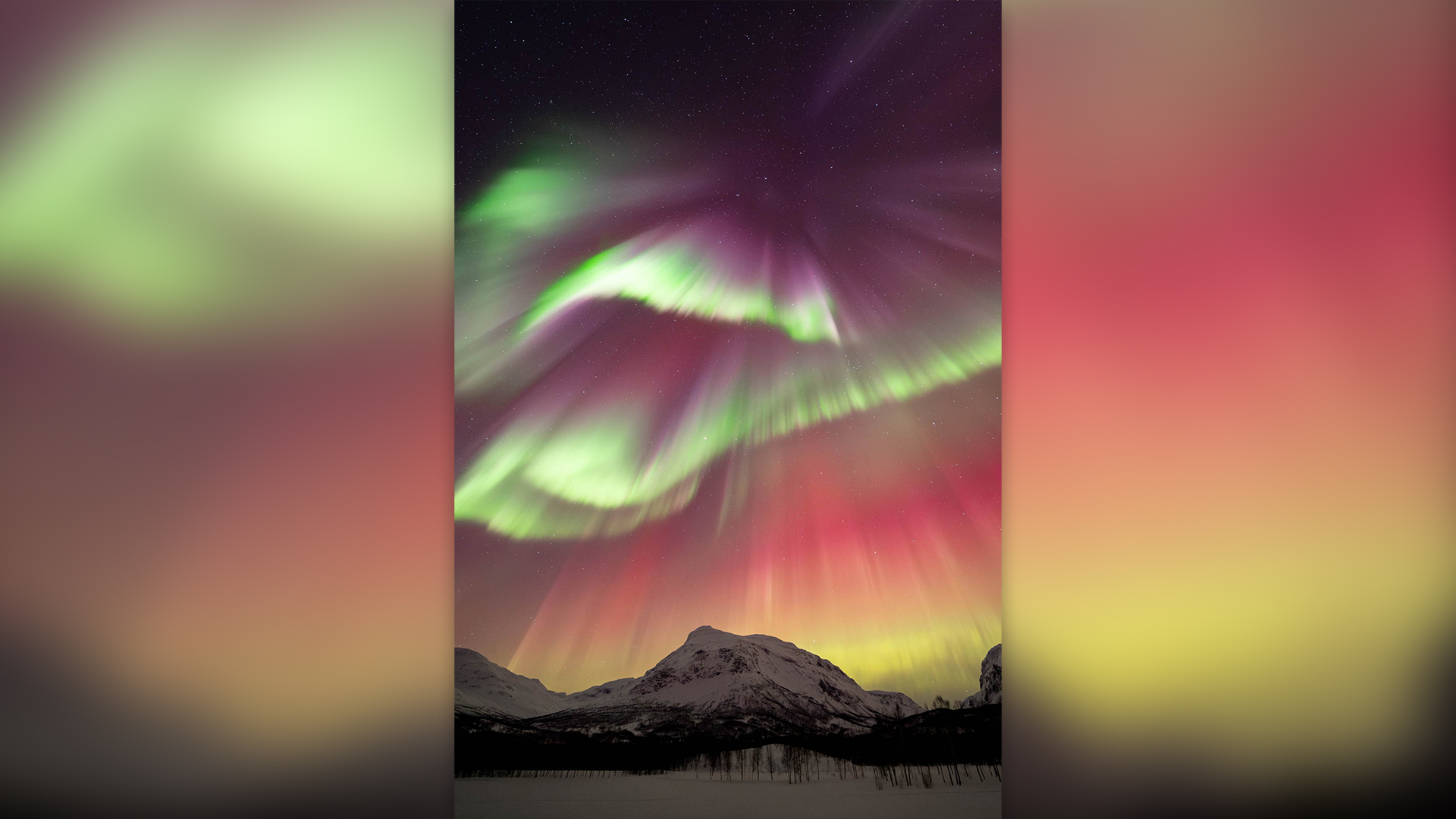
French photographer Vincent Beudez captured this neon burst of light in Tromsø, Norway.
Third place: Lost who I want to be, Jordan McInally
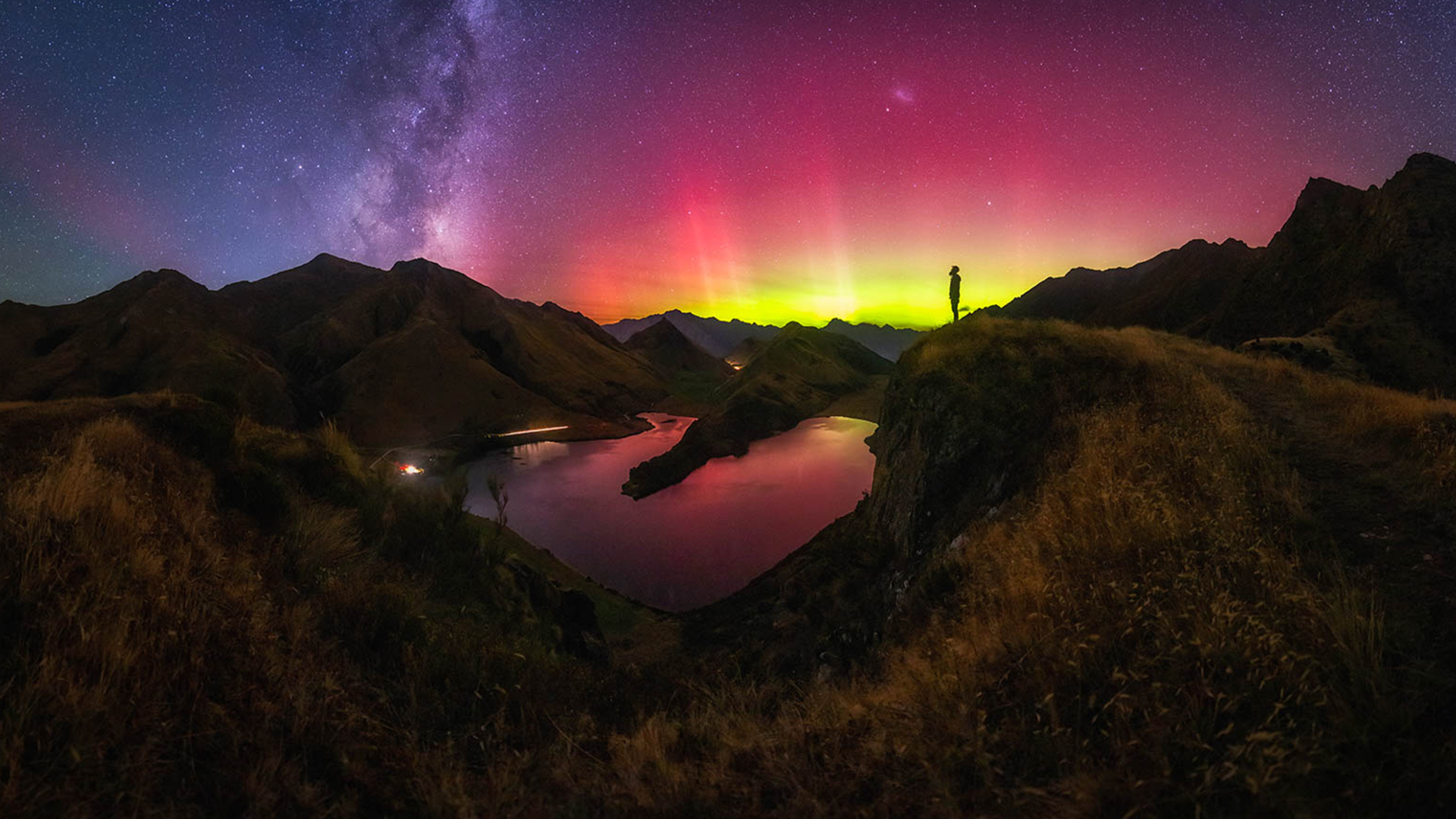
This image of a yellow and magenta aurora over Moke Lake in New Zealand, from photographer Jordan McInally, took third place.
Finalist: Red alert, William Preite
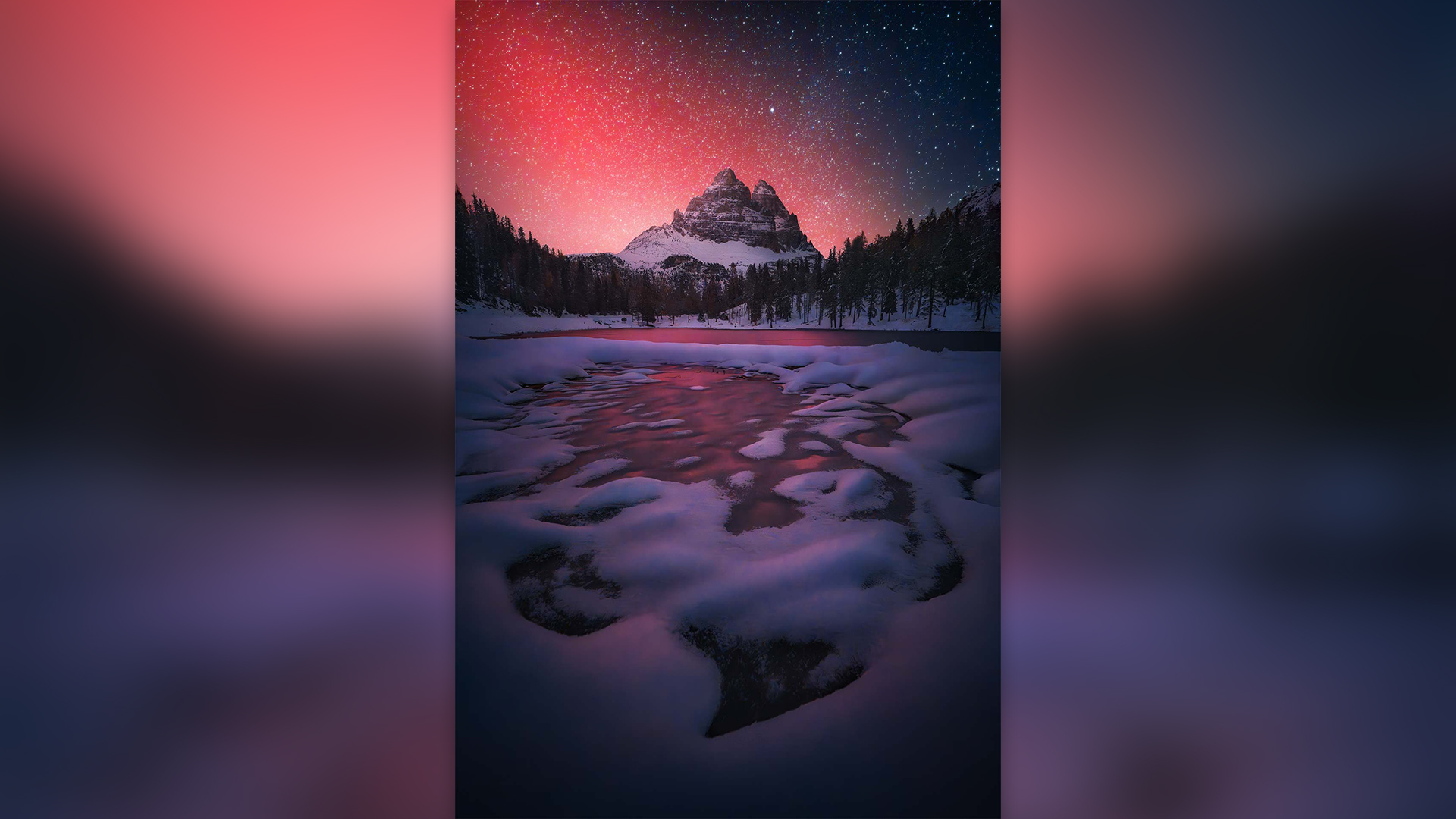
This dazzling, red solar event, photographed by William Preite over the Dolomites in Italy, is actually known as a stable auroral red (SAR) arc, an event even rarer than the aurora. Contrary to its name, this phenomenon is neither particularly stable, nor an aurora, Live Science previously reported. SARs form when oxygen molecules in Earth's upper atmosphere are superheated by the large electric loop that circles our planet.
Finalist: Infinity, Giulio Cobianchi
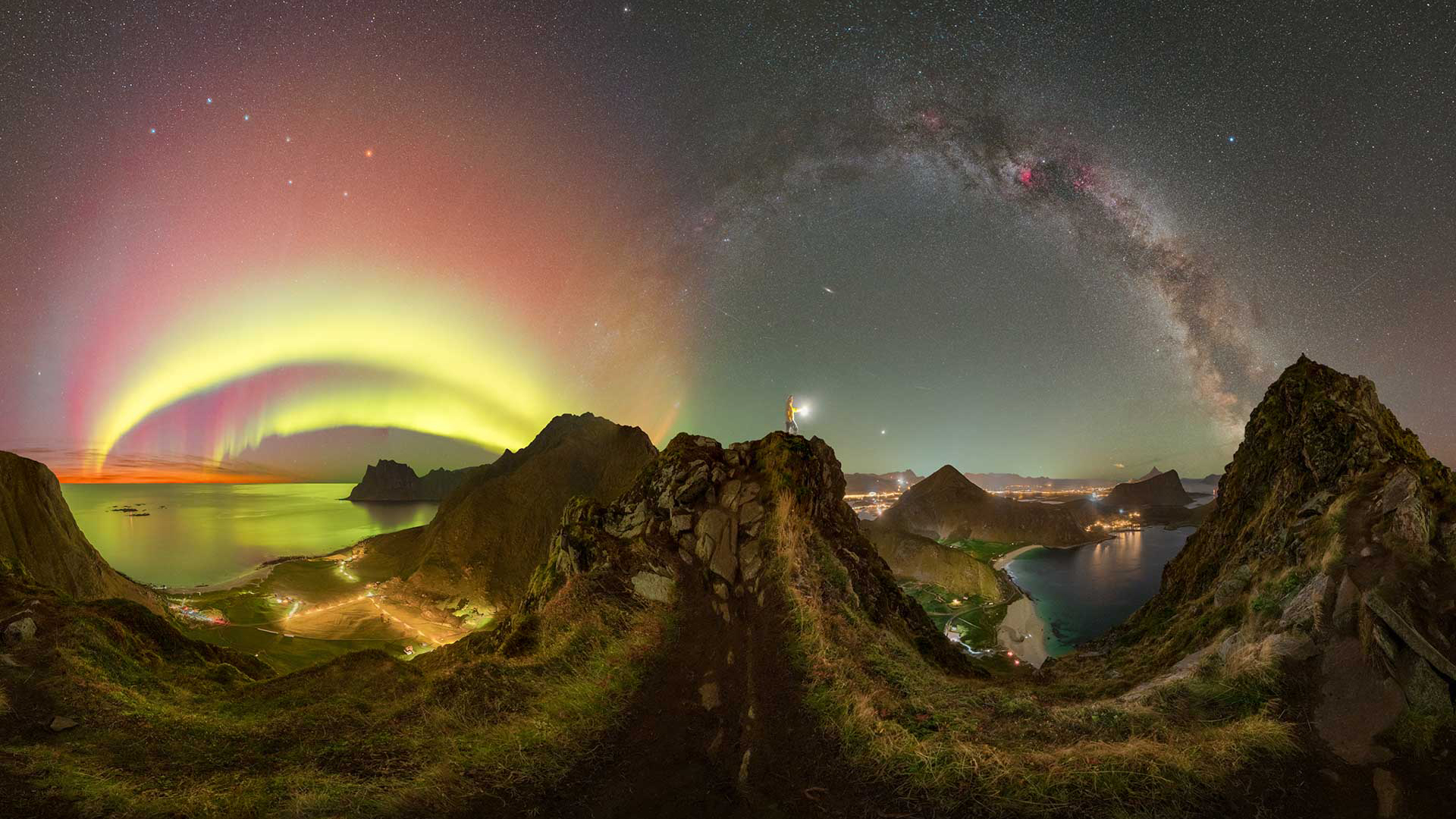
In order to shoot this "double arc" image properly, a few factors need to be in play, according to photographer Giulio Cobianchi. Clear skies and a moonless night coupled with an aurora only visible to the north, enabled this capture of the lights over the Lofoten Islands in Norway.
Finalist: Bakers oven aurora australis, Josh Beames
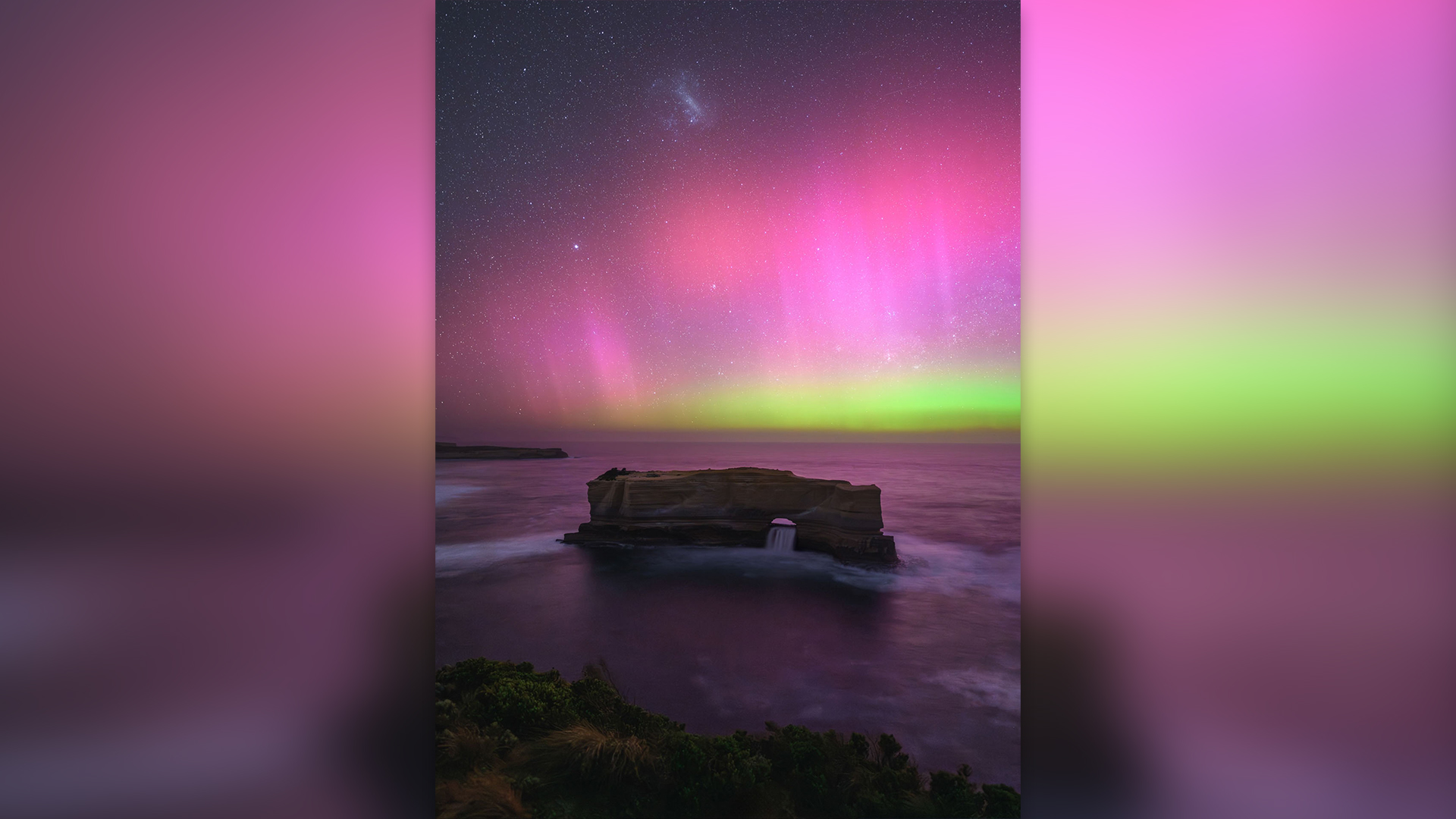
Photographer Josh Beames captured this fluorescent scene of the aurora australis, or southern lights, in Bakers Oven, Australia.
Finalist: Goleuadau'r gogledd, Mathew Browne
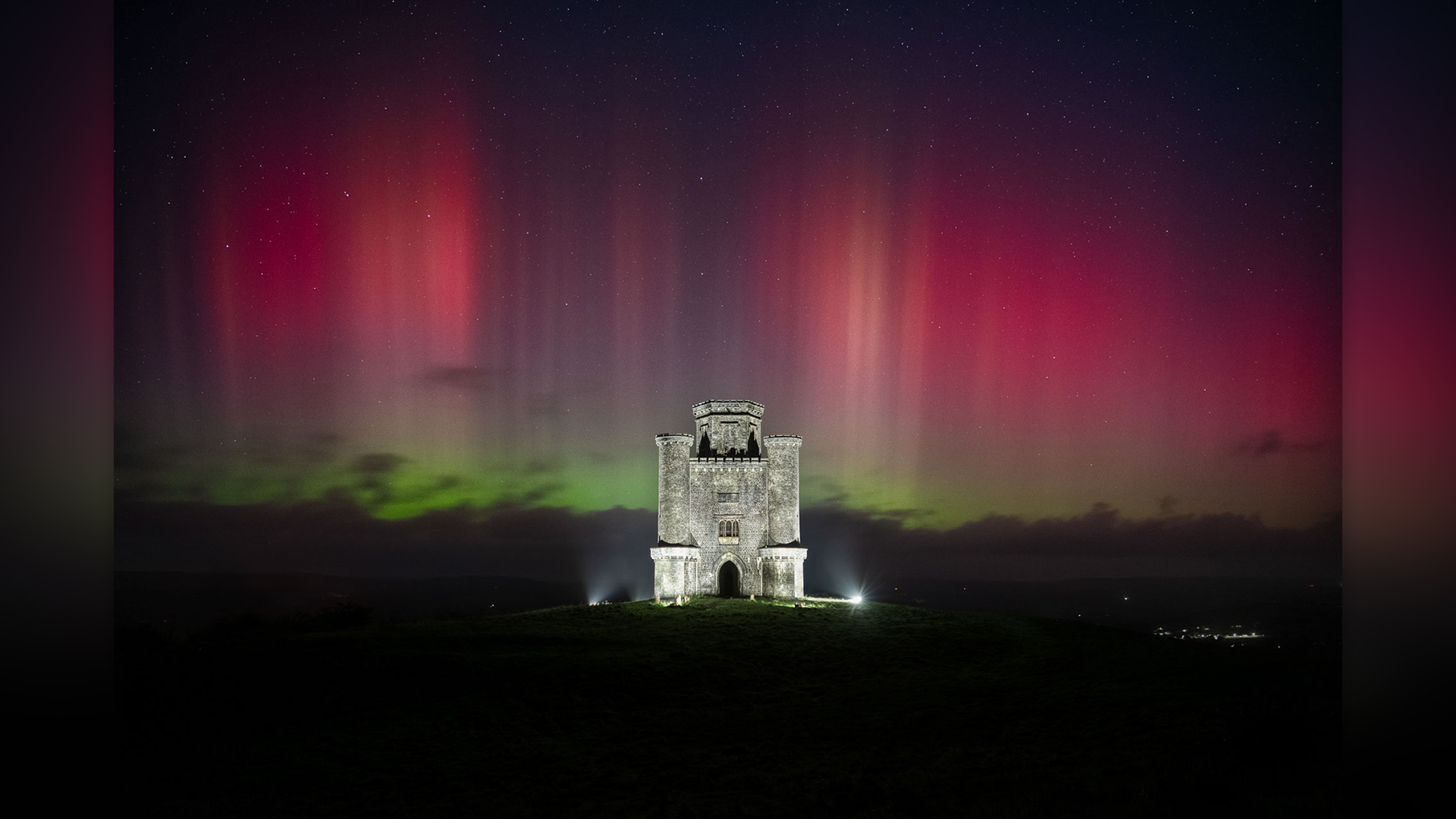
The image's title "Goleuadau’r gogledd" translates to "northern lights" in Welsh. Photographer Mathew Browne captured the rare occurrence of the aurora borealis in the United Kingdom over Paxton's Tower in Wales.
Finalist: The platform, Virgil Reglioni
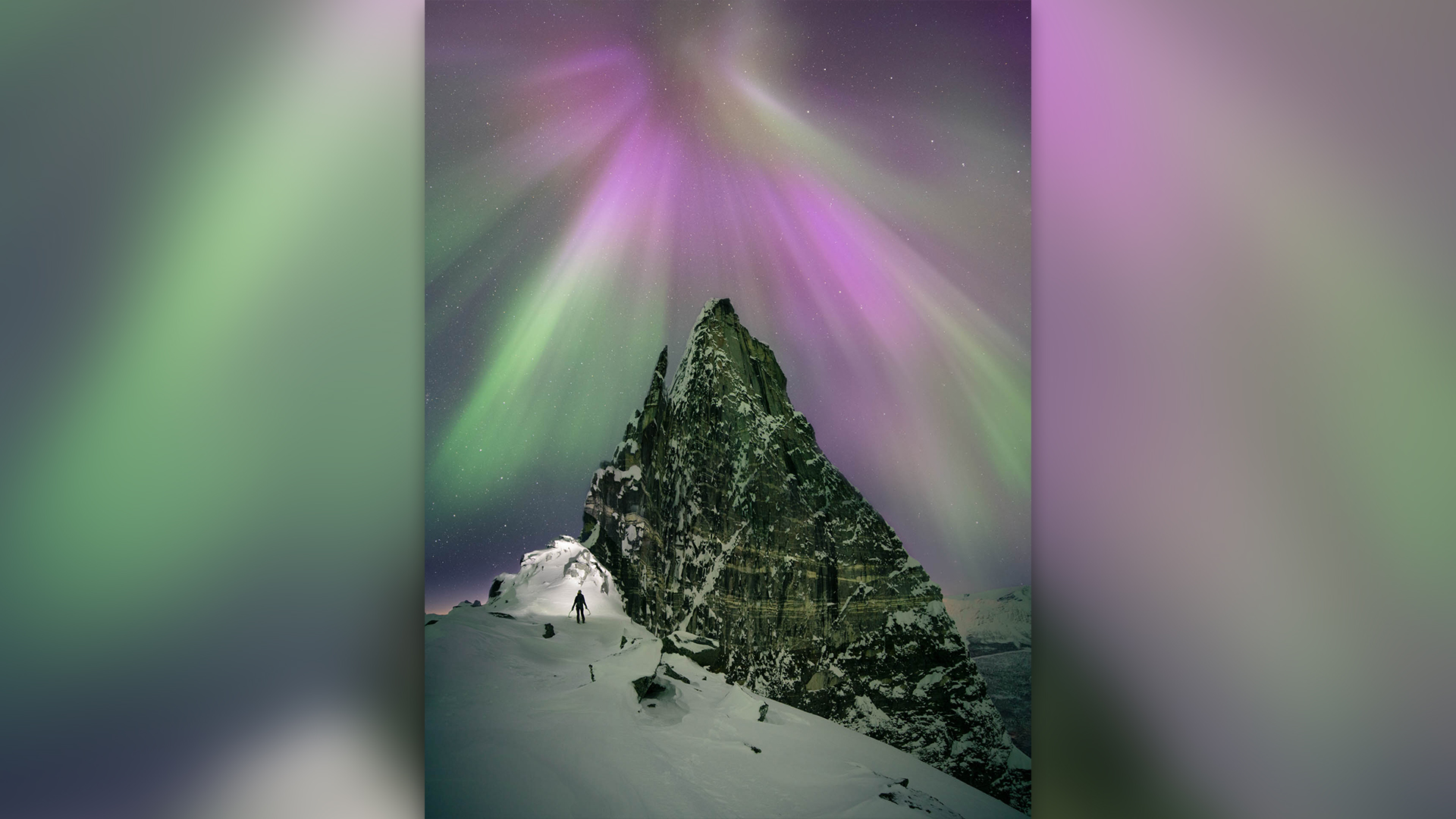
Photographer Virgil Reglioni shot his finalist work during a geomagnetic storm over a peak in Ottertinden, Norway. The team climbed a 47-degree steep incline in minus 5 degrees Fahrenheit (minus 21 degrees Celsius) temperatures to obtain the surreal image.
Finalist: The red flame, Laura Oppelt
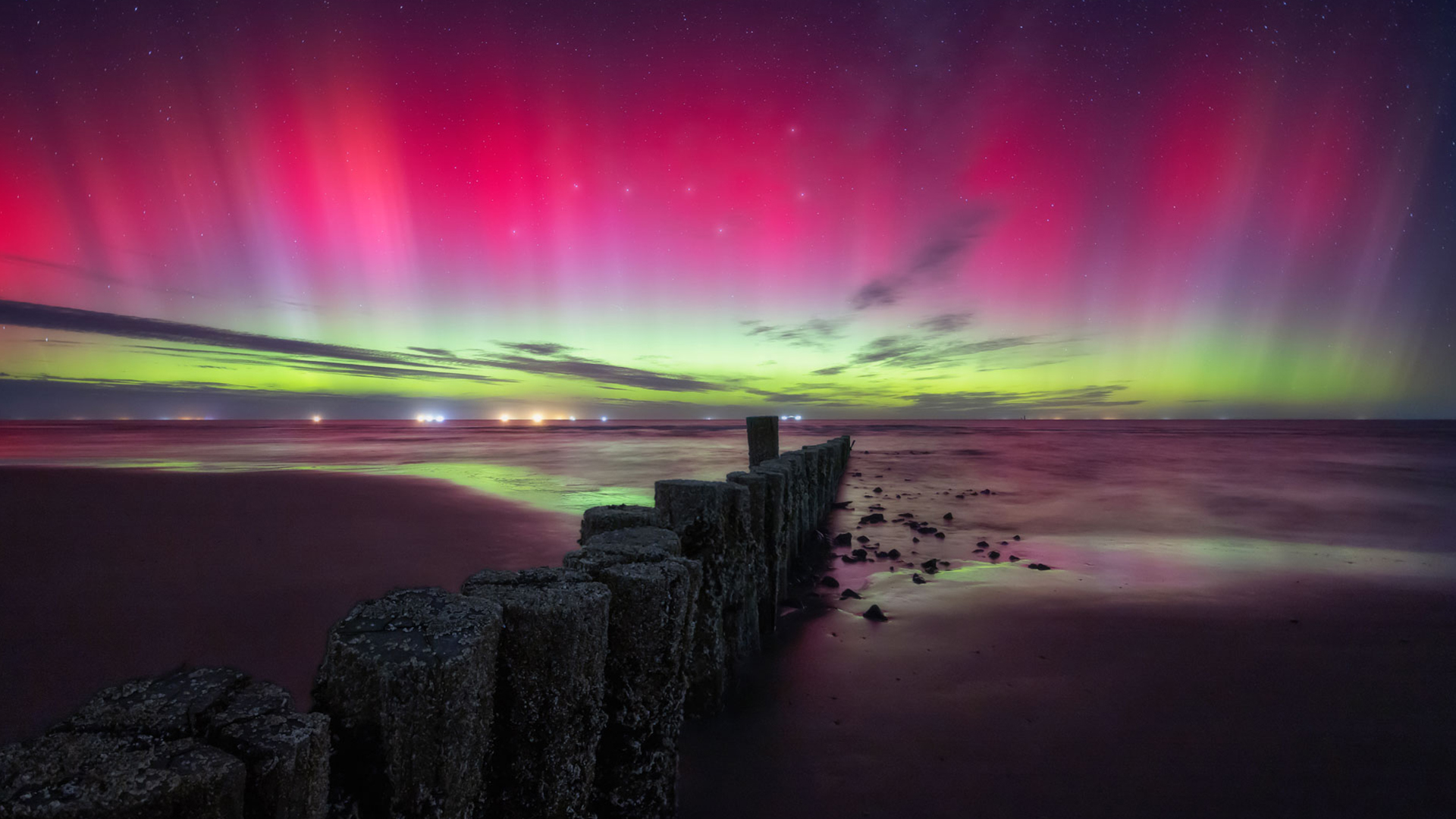
Germany's Wadden Sea National Parks is an unusually southerly location for the aurora borealis, but photographer Laura Oppelt was able to capture this explosion of light on Sept. 25, 2023.
Finalist: Waning sun, Alex Wides
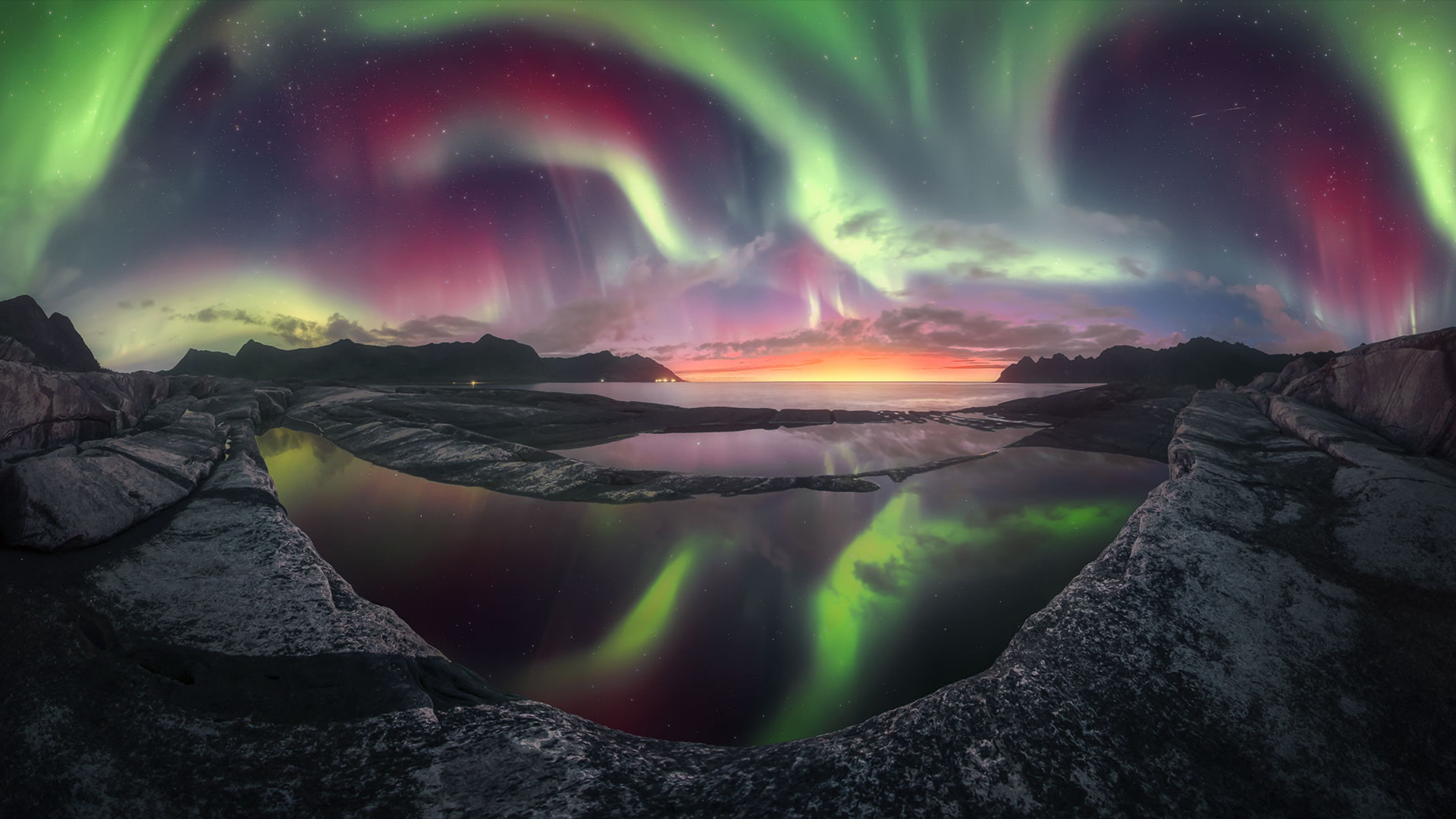
This spectacular 300-degree panorama, which showcases the setting sun during an intense display of the northern lights, was captured on Senja Island in Norway by photographer Alex Wides.
Finalist: Lady in pink, Kenneth LeRose
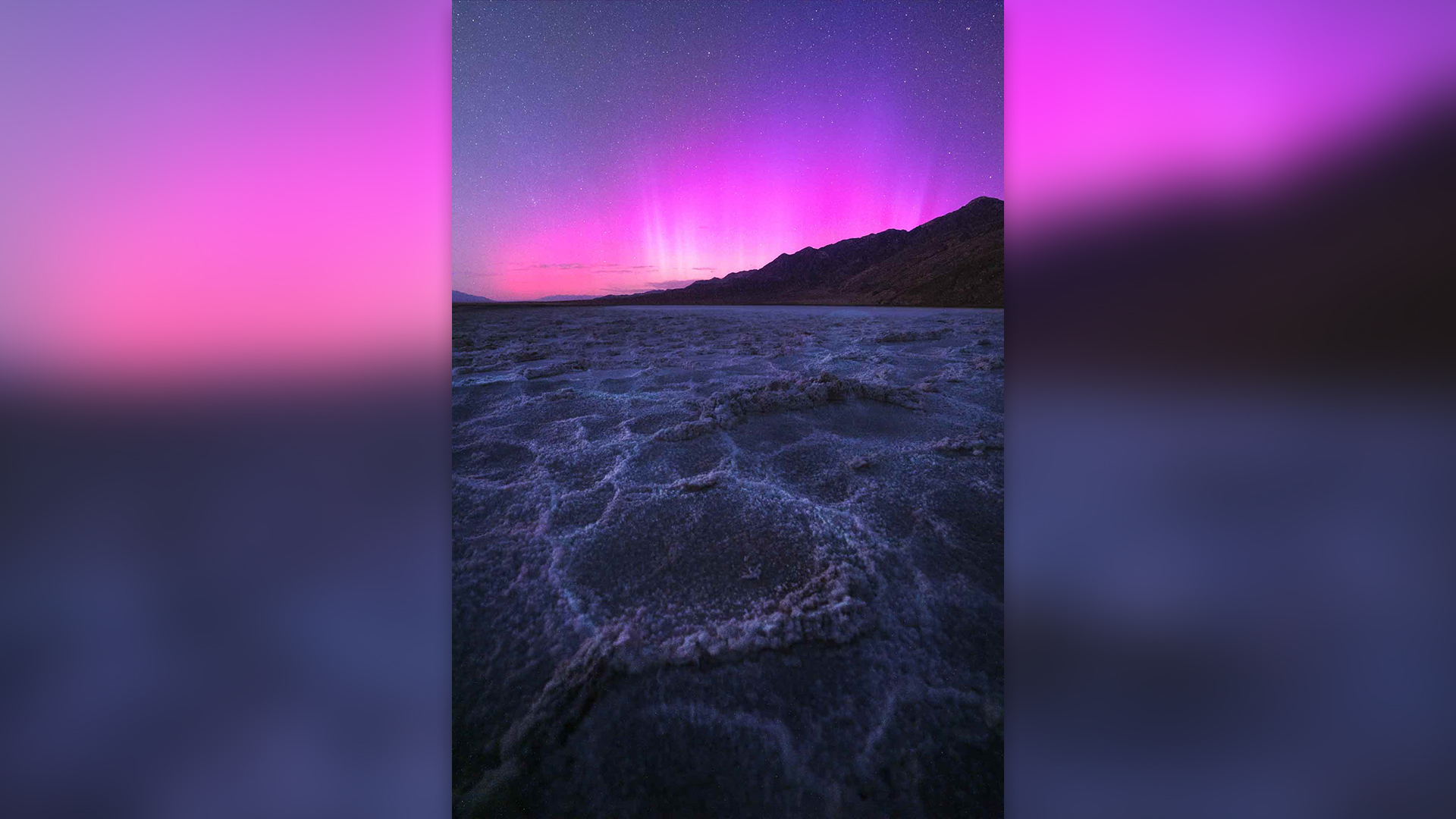
Shot from the lowest altitude in the United States, this violet aurora was captured in Death Valley, California by photographer Kenneth LeRose. Auroras aren't typically seen so far south either.
Finalist: Island of aurora, Kat Lawman
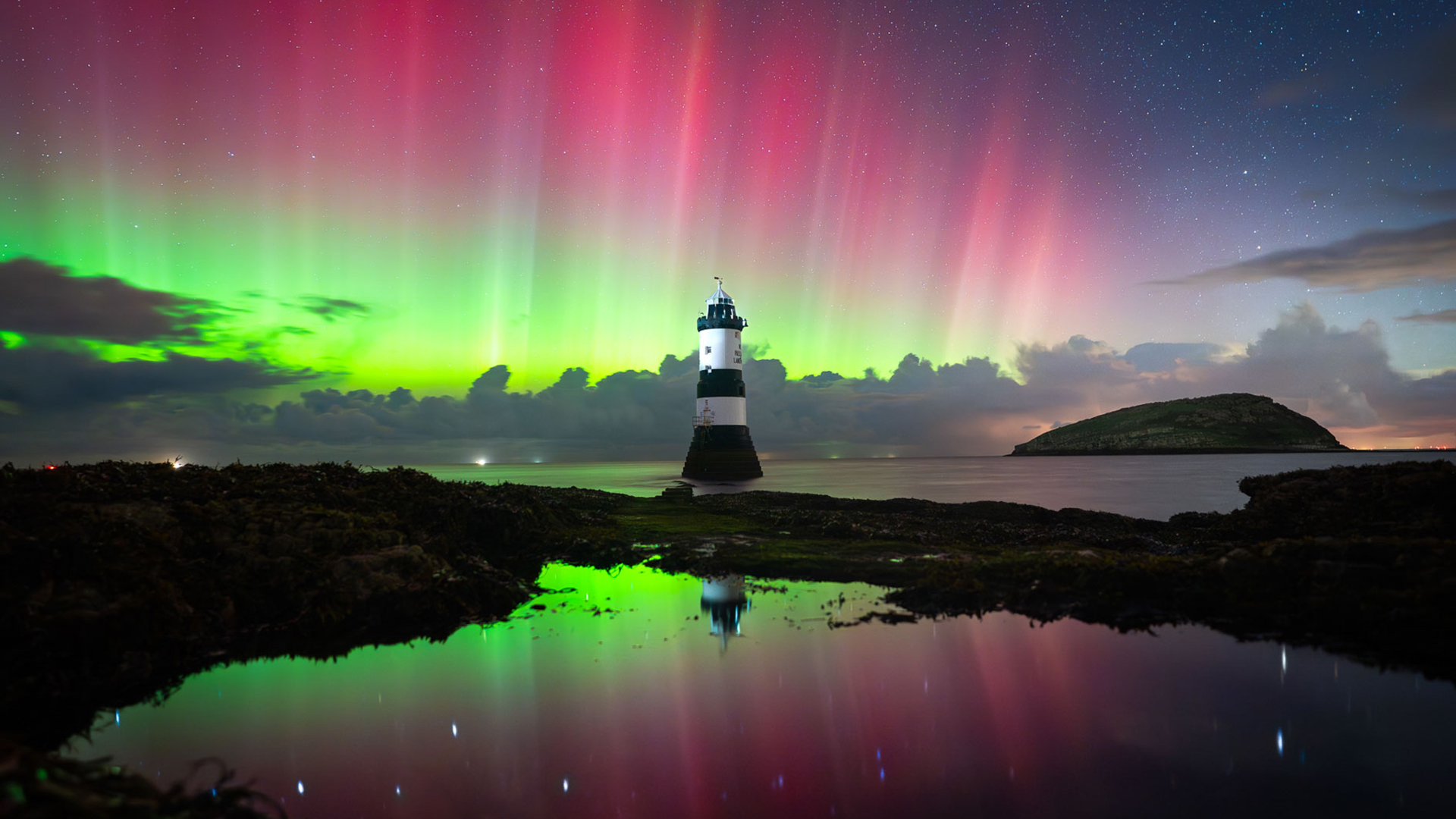
Photographer Kat Lawman captured this rare display of the aurora over Wales, United Kingdom.
Finalist: Aurora explosion, Jason Perry
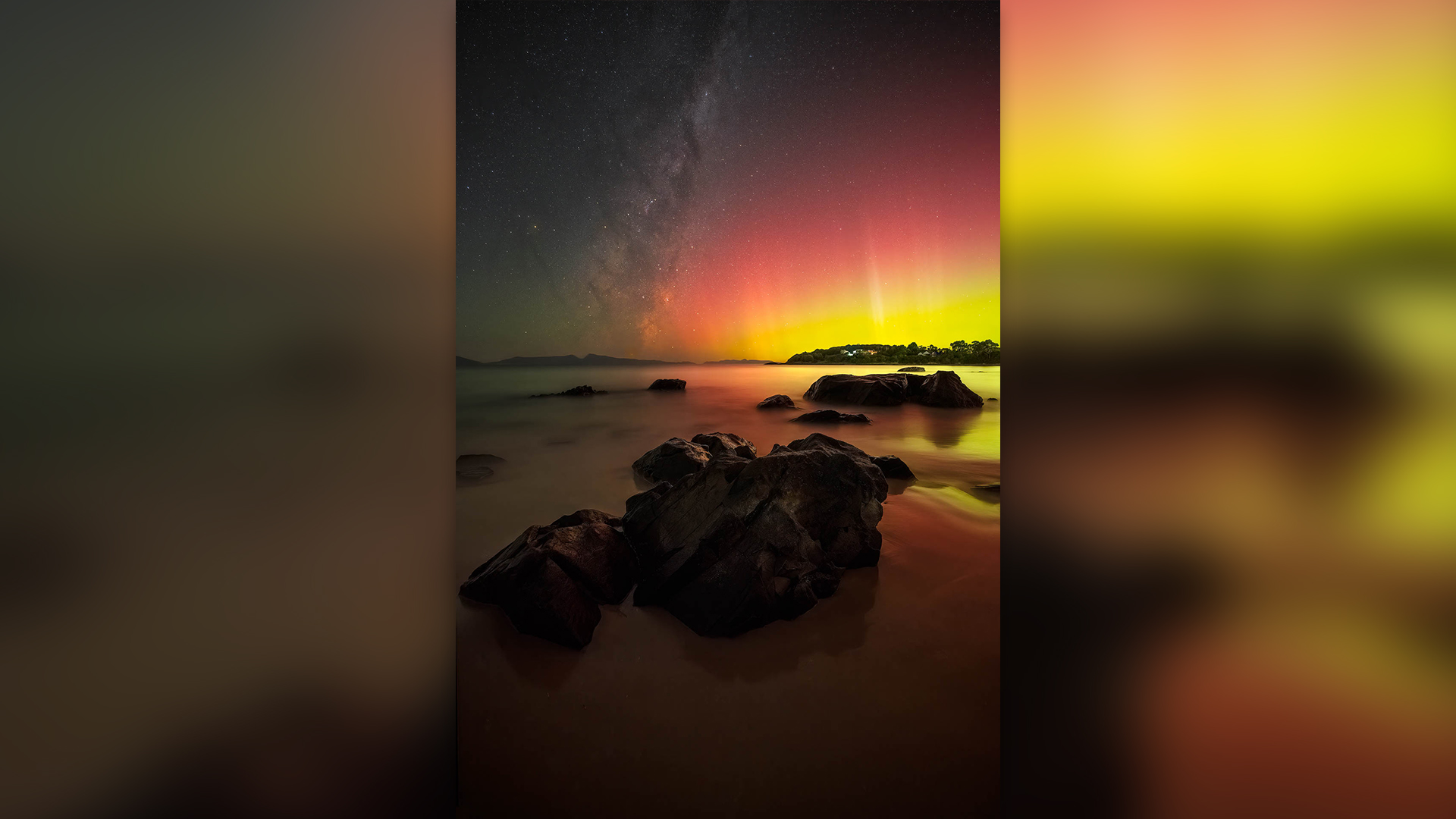
This magenta and yellow display of the southern lights was captured in April, 2023 by photographer Jason Perry in Tasmania, Australia.
Finalist: Gatklettur northern lights, Stefano Pellegrini
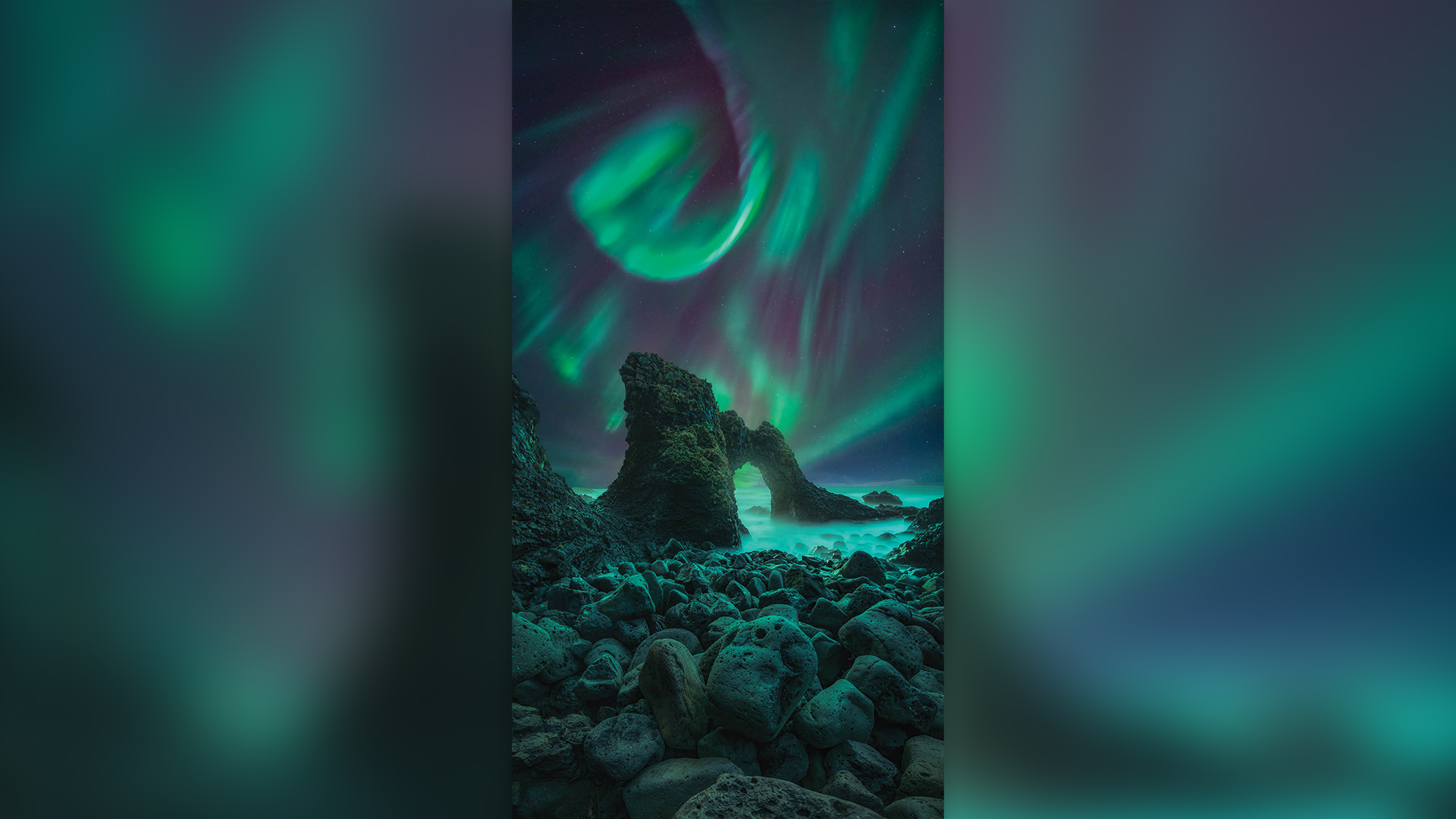
After chasing the northern lights for over a week, Stefano Pellegrini captured this magnificent auroral swirl in Gatklettur, Iceland.
Finalist: Beauty of the north, Elena Ermolina
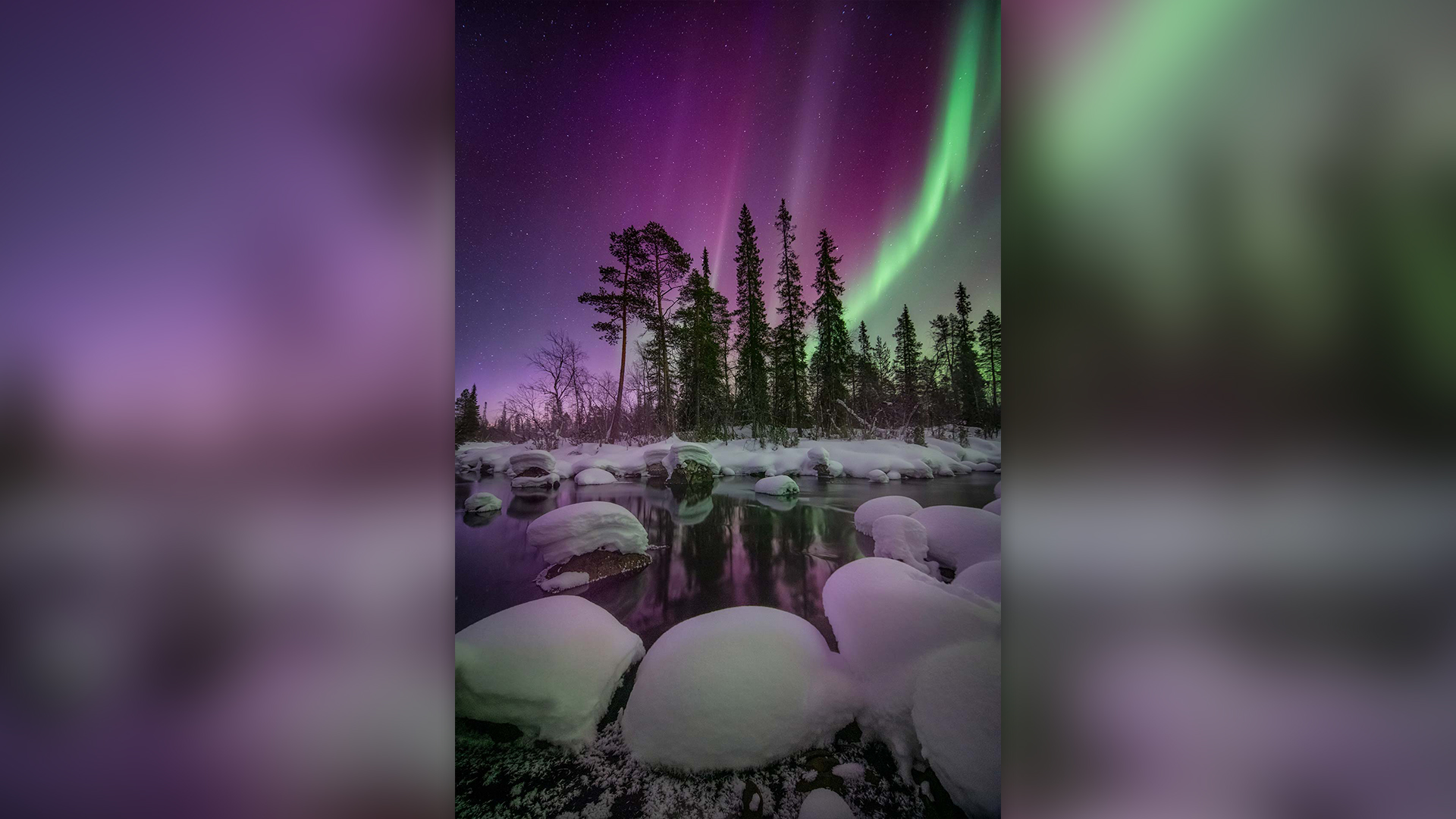
This purple and green aurora waltz was captured by photographer Elena Ermolina on Russia's Kola Peninsula.
Finalist: March Michigan nights, Justin Miller
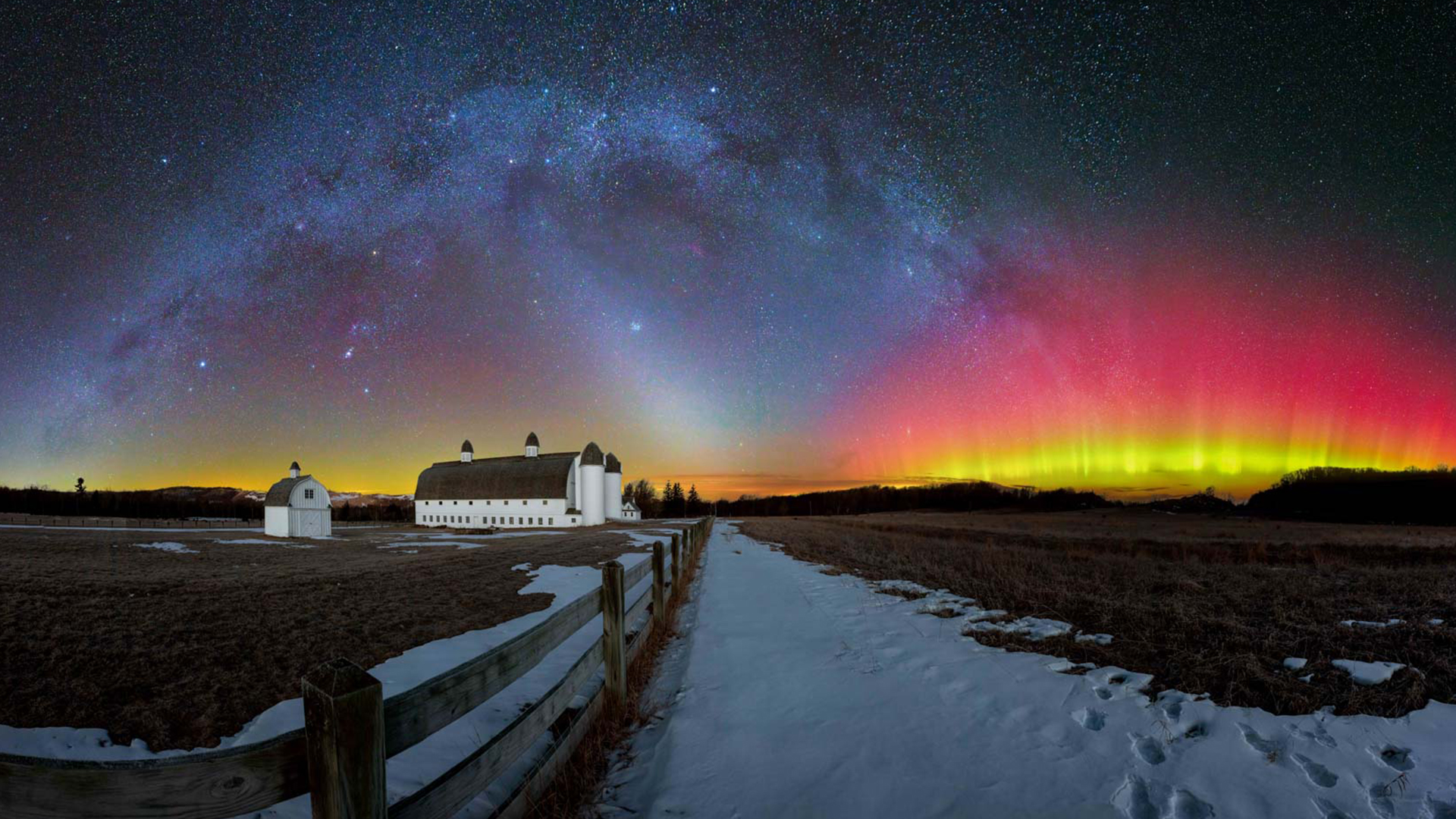
Michigan native, Justin Miller, shot this northern lights display over a farm in Glen Arbor.
Finalist: Fleeting moments on ice, MaryBeth Kiczenski
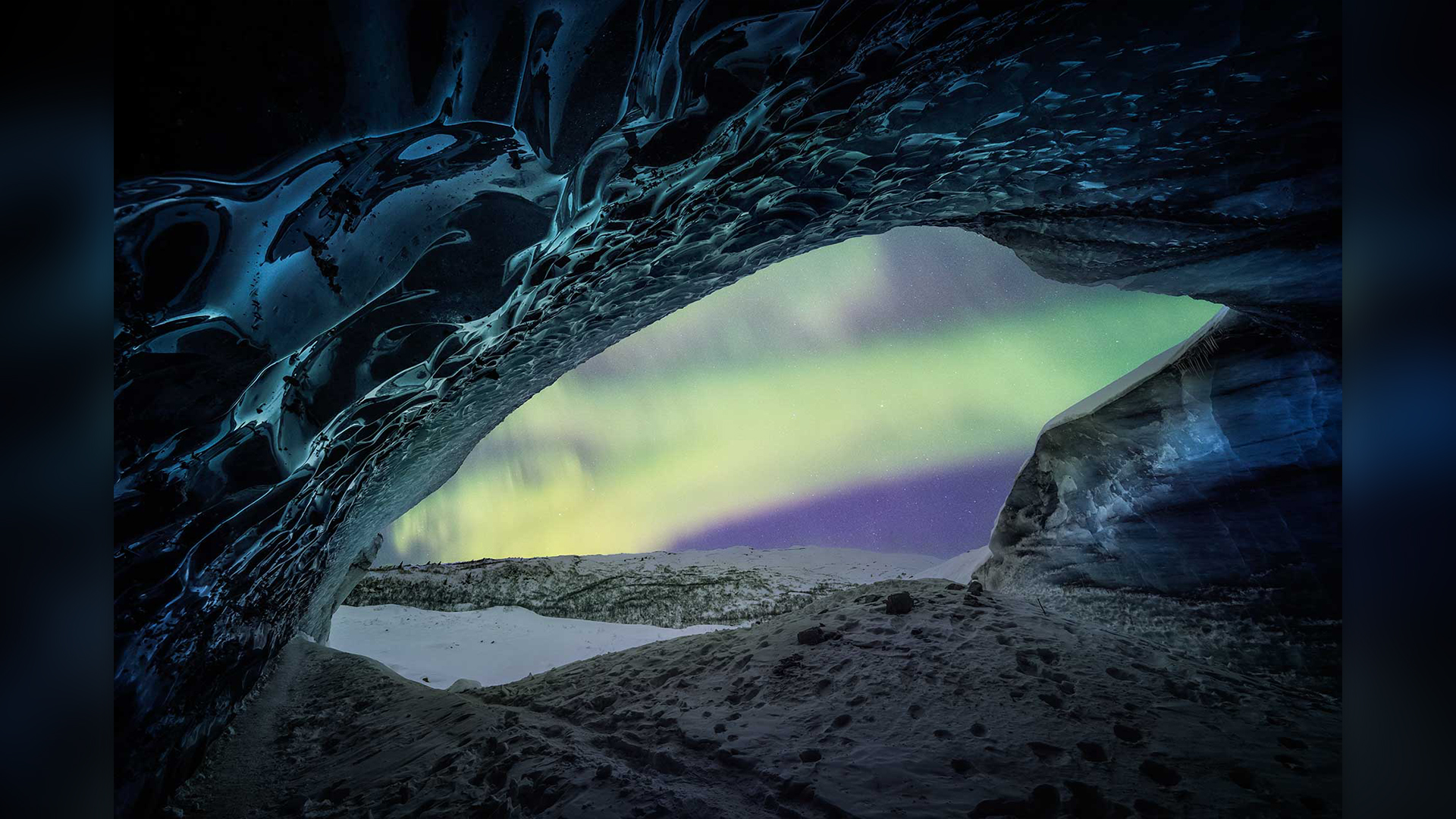
Photographed in March, 2023 by MaryBeth Kiczenski, this Alaskan ice cave collapsed over the summer, making this view of the aurora from within truly one-of-a-kind.
Finalist: Green snakes, Filip Hrebenda
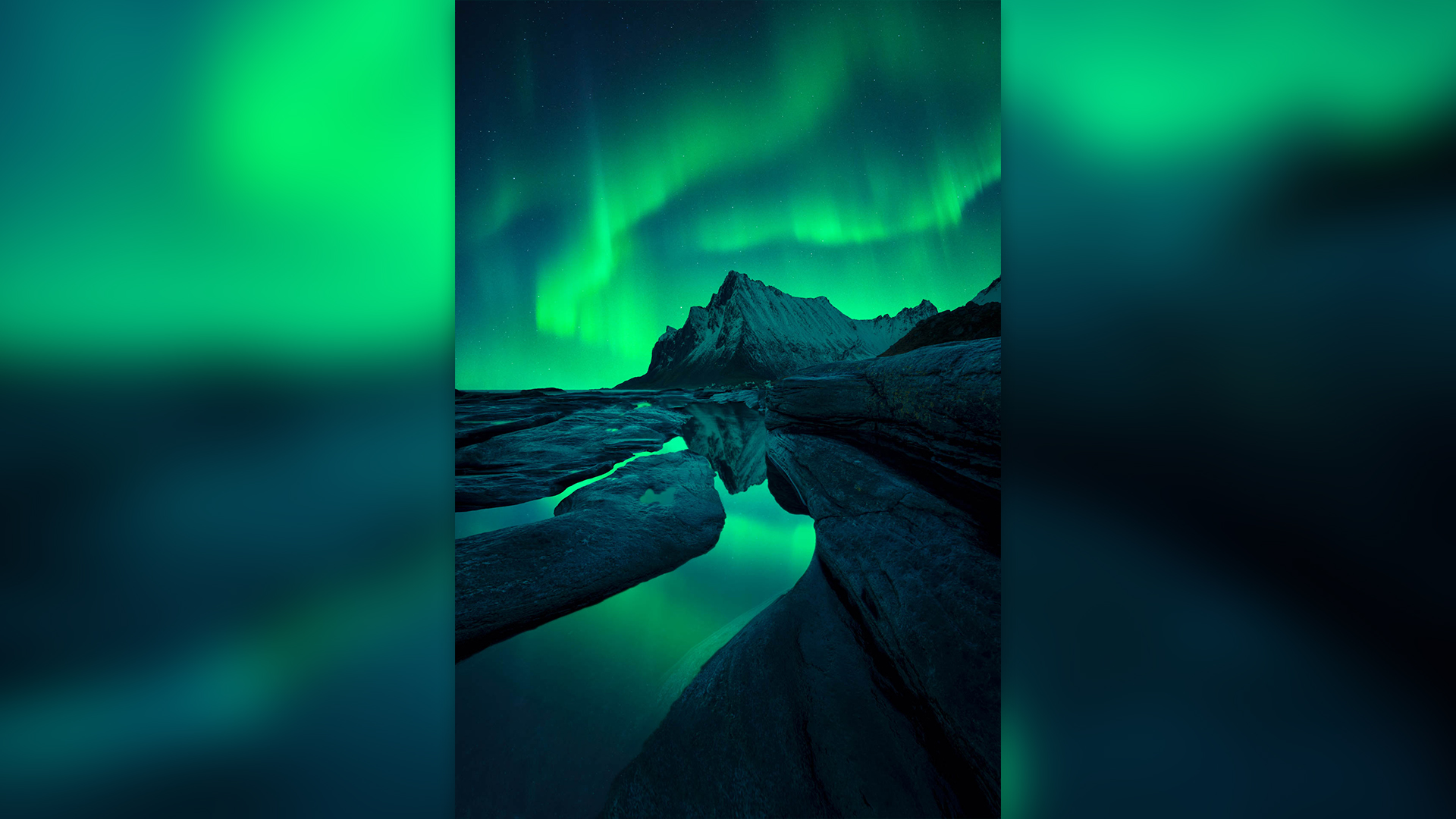
Taken on a lesser-known beach in Lofoten, Norway called "Vikten," photographer Filip Hrebenda captured this winding aurora, which resembles "green snakes."
Finalist: Northern lights in Nova Scotia, Kristine Rose
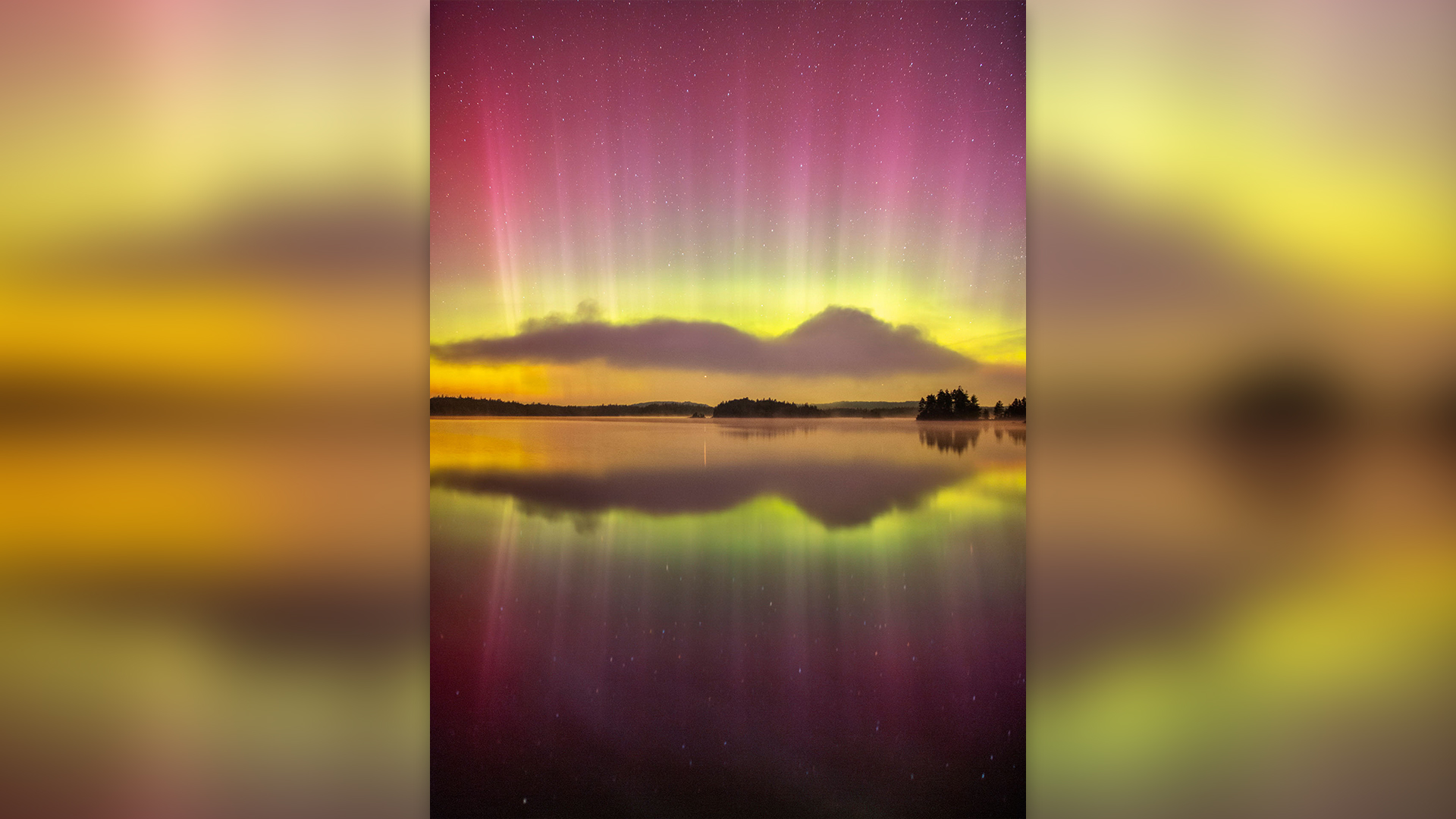
Canadian photographer, Kristine Rose, captured this aurora, along with its reflection, in Nova Scotia.
Finalist: Circle of life, Frøydis Dalheim
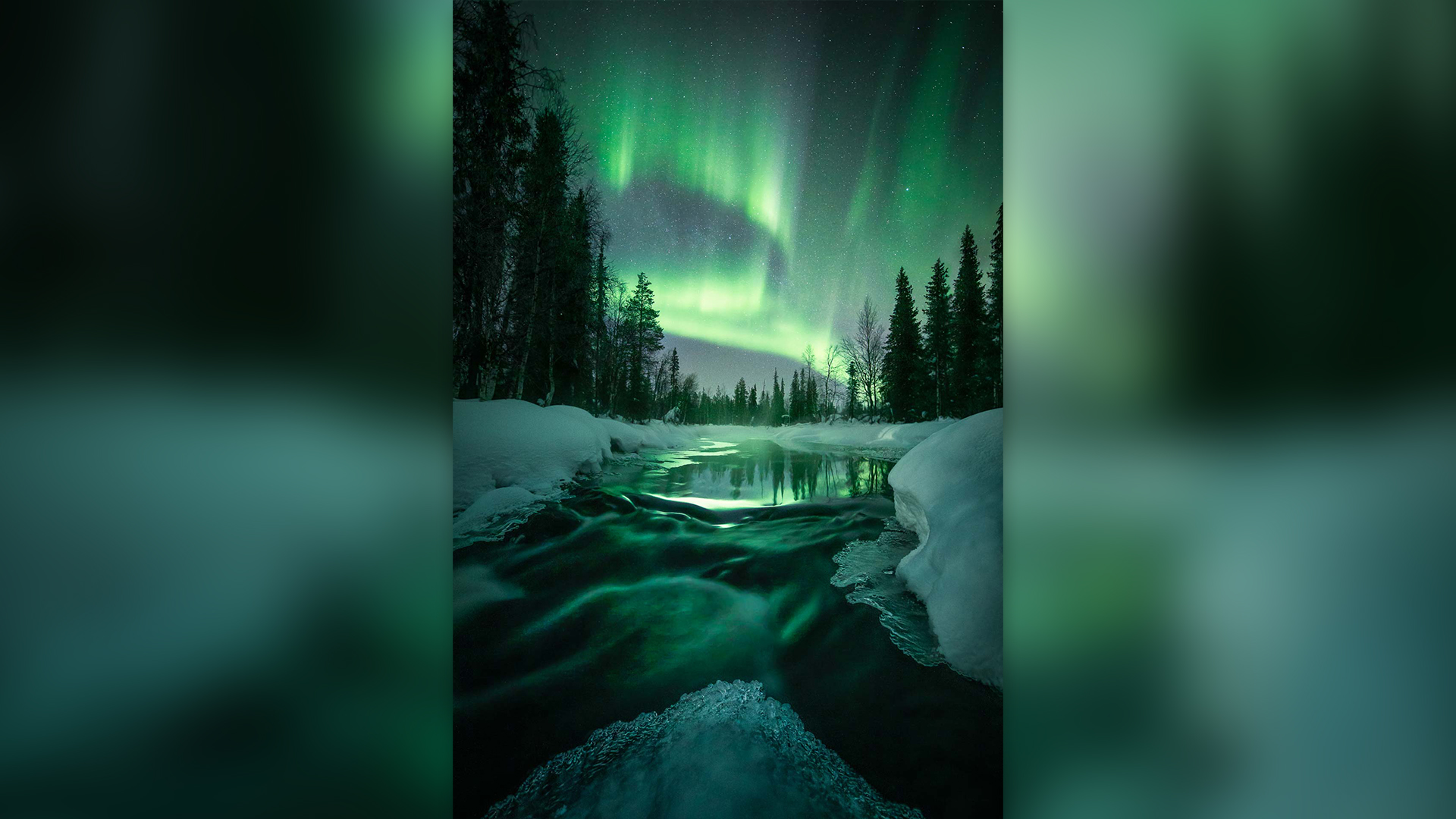
Photographer Frøydis Dalheim shot this winter spectacle in Lappland, Finland on a March night in 2023 that reached almost minus 22 F (minus 30 C).
Finalist: Aurora flame, Richard Zheng
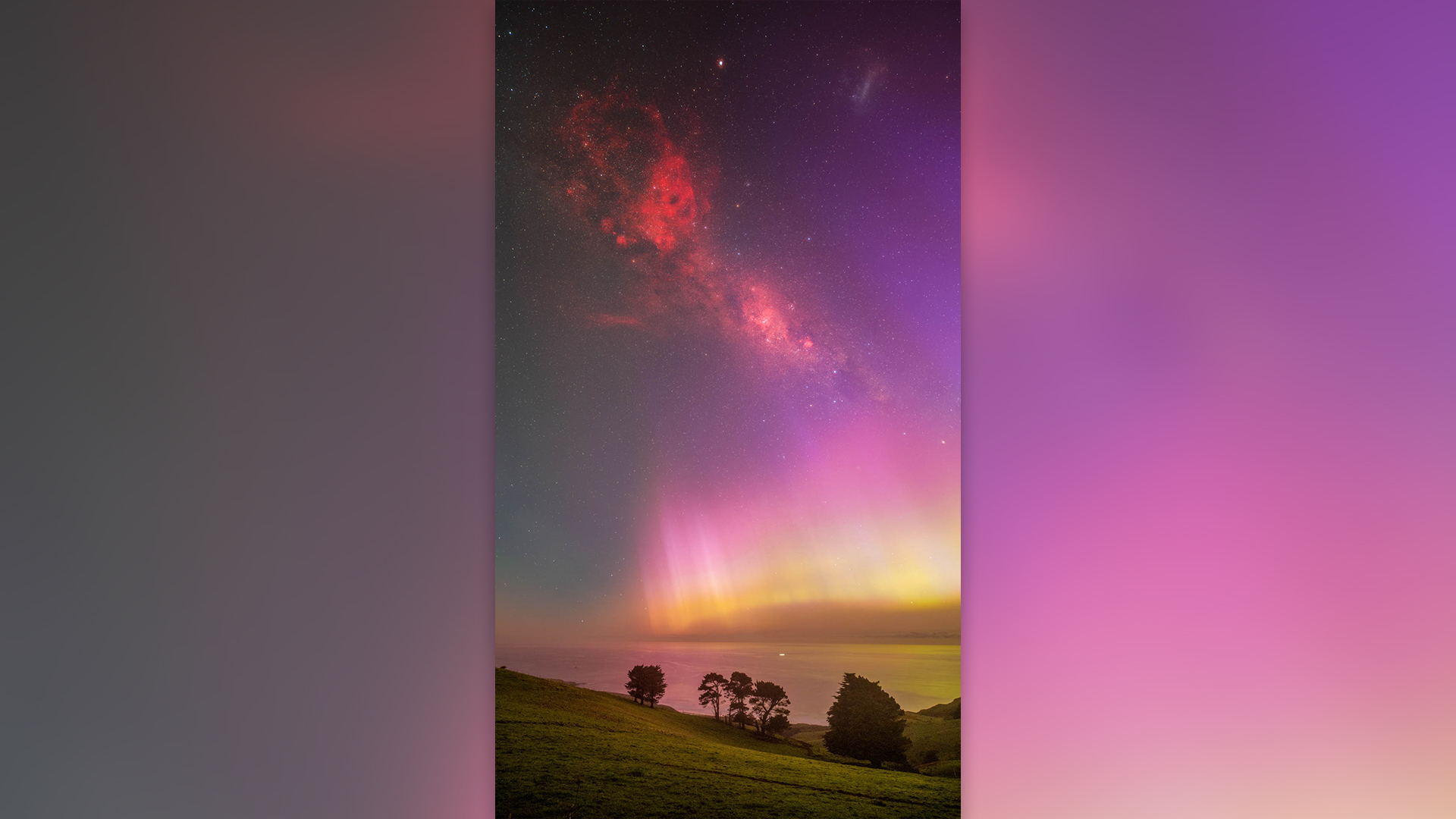
Richard Zheng photographed violet aurora australis over the Dunedin Peninsula in New Zealand. The photo shows the Large Magellanic Cloud in the upper right corner, the Colloidal Nebula as a red mass in the upper left, and the Carina Nebula below.
Finalist: The dance of the green lady, Luis Cajete
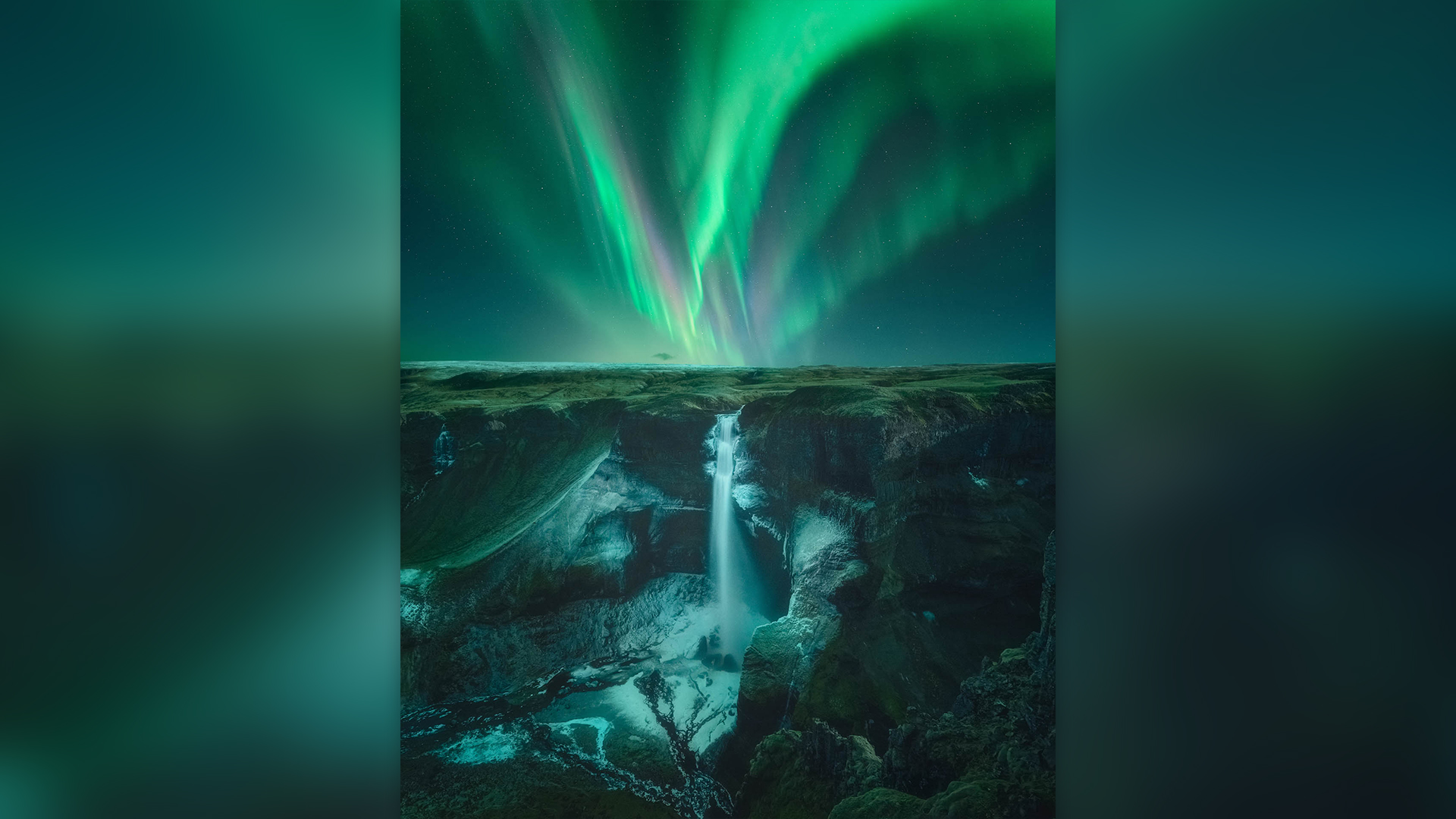
This geyser of green light was photographed by Luis Cajete over Iceland's Haifoss waterfall.
Finalist: Blåvatnet, Lukas Moesch
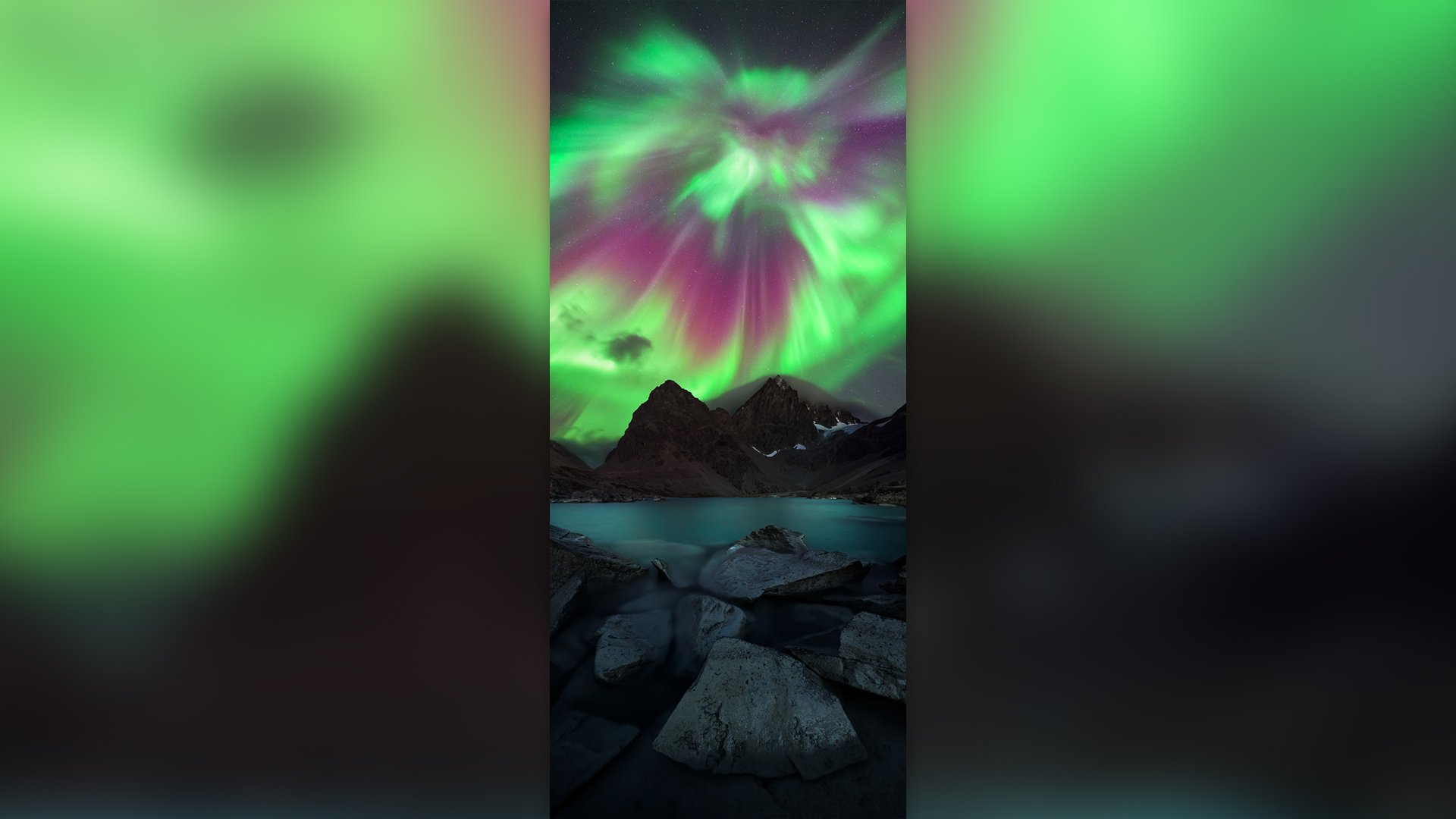
Photographer Lukas Moesch "had a magical encounter with a rare white reindeer (a sign of good luck)," on his way to capture this moment of the northern lights in Tromsø, Norway.
Finalist: Echant, Paul Wilson
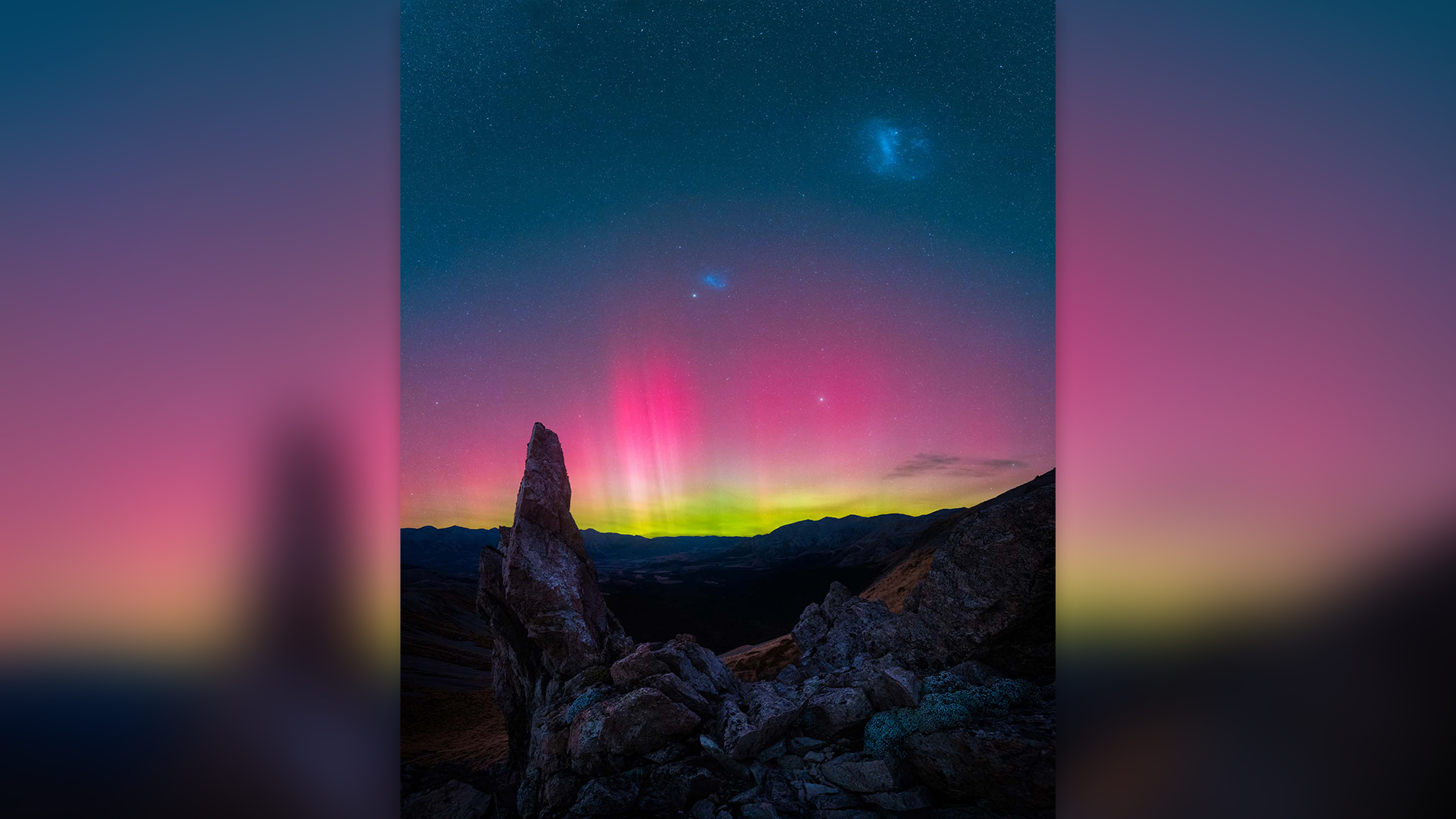
This photograph by Paul Wilson, taken from Camp Saddle in Canterbury, New Zealand, shows the Large and Small Magellanic Clouds beside the aurora australis, galaxies that are only visible in the Southern Hemisphere.
Finalist: Kirkjufell explosion, Marc Marco Ripoll
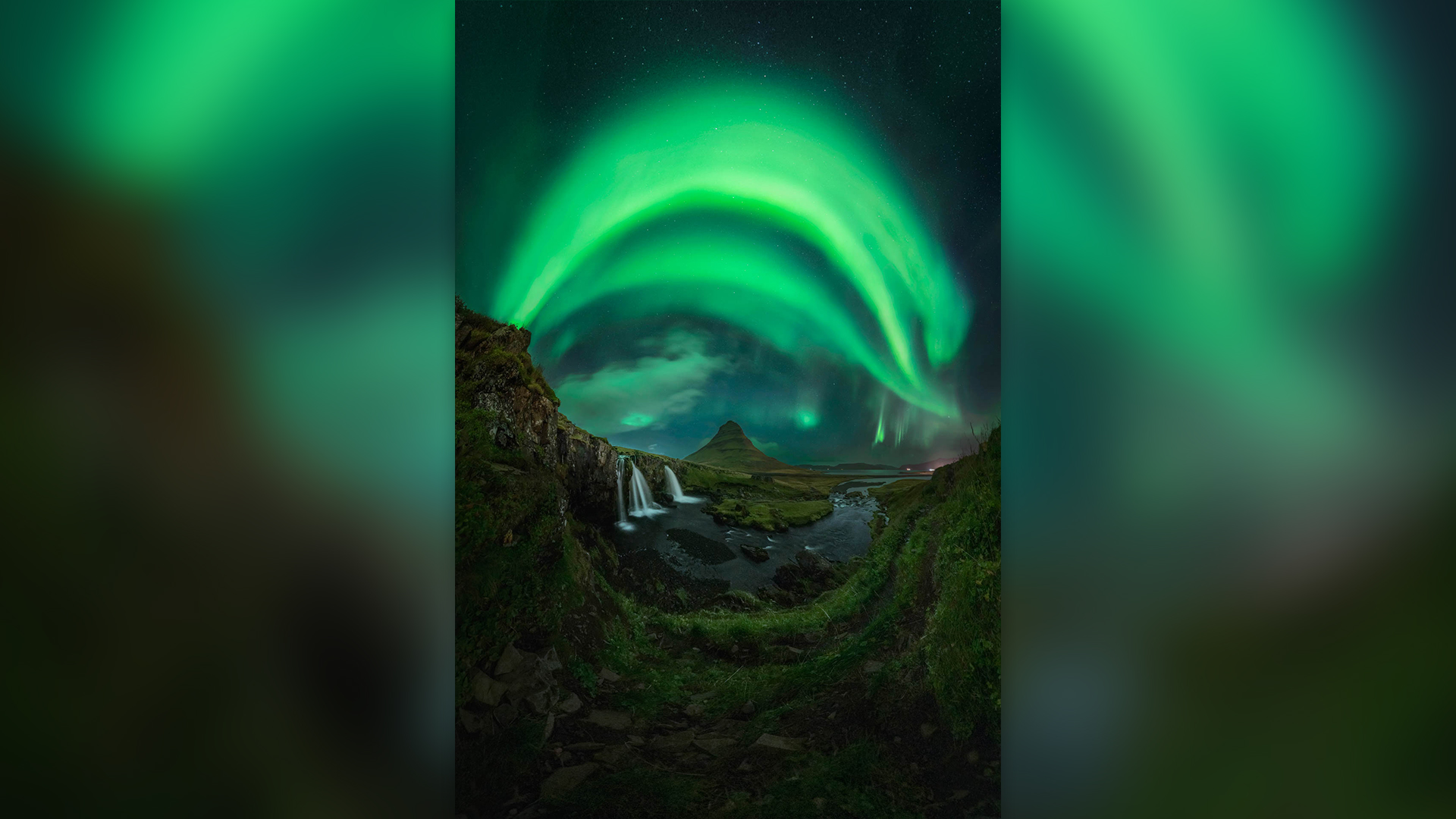
This green vortex was photographed by Marc Marco Ripoll on Iceland's Mt. Kirkjufell, located on the Snæfellsnes peninsula.
Sign up for the Live Science daily newsletter now
Get the world’s most fascinating discoveries delivered straight to your inbox.
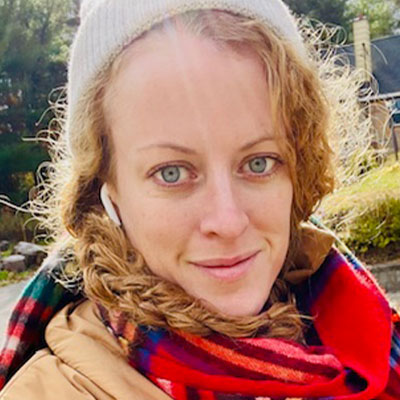
Annie is the production editor at Live Science. She has a background in writing and digital media and studied English and Anthropology at Fordham University in New York City.







